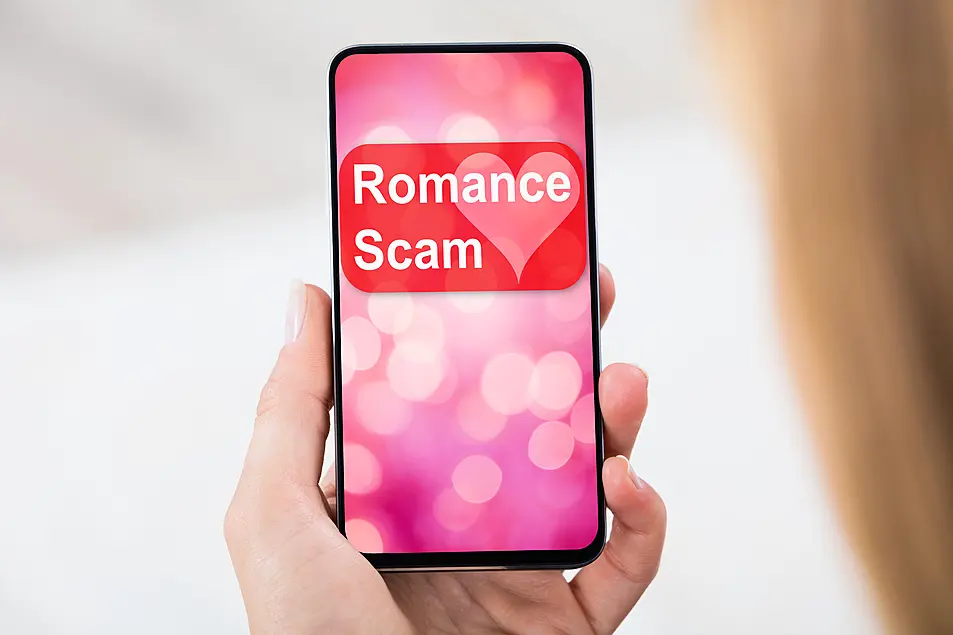
Introduction
Definition of Love Scam
Love scams, also known as romance scams, occur when a fraudster impersonates a romantic interest online to exploit emotional connections for financial gain. These scams often flourish on social media platforms and dating sites, where genuine intentions can be easily masked by deception. Victims may find themselves emotionally invested before realizing they’ve been manipulated.
Why Love Scams are Pervasive
The increasing prevalence of love scams can be attributed to several factors:
- Rising Internet Use: With more people connecting online, fraudulent interactions have become common.
- Emotional Vulnerability: Scammers often target individuals seeking companionship, manipulating their emotions to create dependency.
- Anonymity: The online environment allows scammers to hide their identities, making it challenging to detect deceit.
As these factors converge, love scams thrive, impacting countless lives across the globe.

Red Flags in Love Scams
Sudden Declarations of Love
One of the earliest warning signs of a love scam is the sudden and intense expressions of love. If someone you’ve just met online professes their love too quickly, it’s wise to proceed with caution. Genuine relationships typically evolve over time, and real emotions are built through shared experiences.
Request for Financial Assistance Early On
Another red flag is when a new partner quickly seeks financial help. Scammers often craft elaborate stories to prompt urgent money requests.
For instance:
- Asking for money to cover unexpected medical bills.
- Requesting funds to book a plane ticket for an emergency.
Professes Love Without Meeting in Person
If your online partner declares love but continually makes excuses to avoid meeting, this is a significant red flag. Genuine individuals will want to meet and solidify their connection.
Inconsistencies in Stories
Pay attention to discrepancies in their personal details or backstories. If they frequently change their narrative, it could indicate deceit.
Refusal to Video Call
A scammer will often avoid video calls. Their reluctance to show their face can signal that they’re hiding something.
Unwillingness to Share Personal Details
Healthy relationships involve sharing personal information. If someone refuses to divulge details about their life, be wary.
Pressure to Keep the Relationship Secret
A common tactic is to pressure victims into secrecy, claiming that public knowledge could harm their “relationship.”
Claims of Emergency Situations
Scammers often fabricate emergencies to elicit sympathy and financial aid. An unexpected need for funds should always raise suspicions.
Requests for Gifts or Money
Expecting expensive gifts or regular financial assistance is another strong indicator of a scammer’s true intentions.
Lack of Interest in your Personal Life
Finally, if they show little curiosity about your life while dominating conversation, it suggests they’re focused on exploiting your emotions rather than building a genuine relationship.
Recognizing these red flags is essential in safeguarding oneself against love scams, ensuring that emotional investments are placed wisely.

Types of Love Scams
Military Romance Scam
Military romance scams typically involve scammers posing as members of the armed forces. They often claim to be stationed abroad and create elaborate stories of danger. These imposters ask for money to cover supposed fees or purchases, manipulating victims with tales of love and commitment.
Inheritance Scam
In inheritance scams, the scammer claims that the victim has inherited a fortune from a distant relative but must first pay a fee to unlock the funds. This scenario often combines romance with greed, enticing victims with both love and financial promises.
Medical Emergency Scam
This type revolves around an alleged medical crisis, where a scammer feigns illness or injury, urgently requesting financial help for treatment. Victims are often moved by compassion and the supposed urgency of the situation.
Foreign Lottery Scam
In foreign lottery scams, scammers claim victims have won a lottery they never entered, asking for personal information or fees to release the “winnings.” This creates a false sense of excitement and opportunity, often used as bait within love scams.
Online Dating Scam
Online dating scams are perhaps the most recognized type. Scammers create fake profiles on dating sites, engaging victims with false personas. They build emotional connections before ultimately making financial requests that reveal their true intentions.
Understanding these various types of love scams helps individuals remain vigilant, ensuring they do not fall prey to deceptive tactics disguised as love or opportunity.

How to Protect Yourself
Verify Information and Identities
One of the best defenses against love scams is to verify any information provided by your online partner. Simple background checks or looking them up on social media can give you clues about their authenticity.
- Check their profiles for inconsistencies.
- See if their online photos match their stories.
Avoid Sharing Personal and Financial Details
Be cautious when it comes to sharing personal or financial information. Scammers may exploit your trust for their gain.
Remember:
- Never give out your bank details or social security number.
- Refrain from sharing sensitive information until you fully trust the individual.
Conduct Reverse Image Searches
If you become suspicious, conducting a reverse image search can reveal whether the photos your romantic interest uses are genuine. Scammers often use stolen images, and a quick search might expose their deceit!
Trust Your Instincts
Your gut feelings are powerful. If something feels off, it probably is. Scammers are skilled manipulators, so being aware of any discomfort can help you avoid pitfalls.
Report Suspected Scams to Authorities
Lastly, if you suspect that you’re dealing with a scammer, do not hesitate to report them to the relevant authorities. Reporting scams can help protect others from falling victim to the same fraudulent tactics.
Implementing these proactive measures ensures a more secure online experience, allowing you to engage in healthy relationships while keeping potential threats at bay.

What to Do If You’ve Been Scammed
Cease All Communication
If you realize you’ve been scammed, the first crucial step is to stop all communication with the scammer. Continuing contact might lead to further manipulation or financial loss. It’s important to protect yourself and cut ties completely.
Preserve Evidence
Next, preserve any evidence related to the scam. Save emails, chat logs, and payment records, as these documents can be vital for investigations. Keeping a detailed record may help law enforcement catch the perpetrator.
Report the Scam
Do not hesitate to report the scam to local authorities or consumer protection agencies. Organizations such as the Federal Trade Commission (FTC) or Action Fraud can provide guidance, and reporting helps warn others about the scammer.
Seek Support
Finally, seek emotional support. Being scammed can lead to feelings of shame or isolation, but remember you are not alone. Discussing your experience with trusted friends or joining support groups can be healing.
Taking these steps not only aids in your recovery but also contributes to broader efforts to combat love scams, helping others stay safe in the process.

Staying Safe Online
Tips for Safe Online Dating
When engaging in online dating, prioritize your safety by following specific guidelines.
- Use Reputable Platforms: Stick to well-known dating websites or apps that have robust security measures in place.
- Meet in Public: Arrange initial meetings in public places to ensure your safety.
- Take Your Time: Don’t rush into sharing personal details or meeting in person until you feel comfortable.
Setting Privacy Settings
Another important step is to adjust your privacy settings on social media accounts.
- Limit Profile Visibility: Make sure your profile is not publicly accessible.
- Control Friend Requests: Only accept requests from people you know.
This ensures that potential scammers have minimal access to your information.
Educating Yourself on Common Scams
Finally, knowledge is your best defense. Familiarize yourself with prevalent online scams by:
- Researching: Read articles, watch videos, or join webinars that raise awareness about different scams, including dating fraud.
- Joining Forums: Connect with other online daters for shared experiences, tips, and insights.
By implementing these strategies, you can greatly enhance your safety while navigating the complexities of online relationships, allowing for more enjoyable and secure experiences.

Conclusion
Recap of Red Flags
In summary, recognizing the red flags can be crucial in avoiding love scams. Sudden declarations of love, requests for financial assistance, and reluctance to meet in person are all significant indicators.
Remember:
- Watch for inconsistencies in stories.
- Be cautious about sharing personal information.
Importance of Vigilance
Staying vigilant is essential in today’s digital landscape, where scammers continuously evolve their tactics.
- Trust your instincts and take the time to verify information.
Being aware and proactive can help protect you and others from falling victim to fraud.
Final Thoughts
Online dating should be an exciting journey, not a perilous one. By educating yourself, implementing safety measures, and maintaining awareness of potential scams, you can enjoy meaningful connections while keeping your heart and finances safe. Stay informed, and don’t hesitate to reach out for support if you suspect any foul play. Remember, it’s always better to be safe than sorry.
